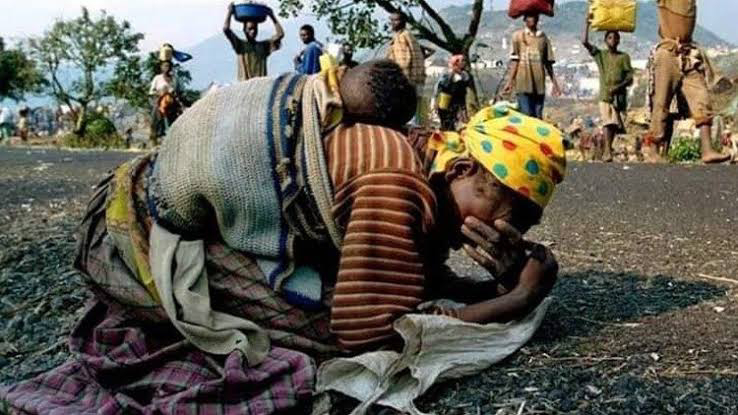Advertisement
When you are poor everything you do fails.
April 15, 2023
It is true that poverty can make it difficult to succeed in many areas of life. People facing poverty often lack access to resources and opportunities that can help them achieve their goals. However, it is important to note that poverty is not a personal failing, but rather a systemic issue that is influenced by factors such as economic policies, social structures, and historical circumstances.
While having money can make it easier to achieve certain goals, it is not a guarantee of success or happiness. Wealth can come with its own set of challenges and responsibilities, and it is important to remember that material possessions are not the only measure of a fulfilling life.
It is also true that people often have different attitudes towards those who are poor versus those who are wealthy. This is a reflection of societal values and prejudices, and it can be difficult for people facing poverty to overcome these biases. However, it is important to challenge these attitudes and work towards creating a more just and equitable society where everyone has the opportunity to succeed.
What can we do to challenge societal attitudes towards poverty?
Challenging societal attitudes towards poverty requires a collective effort from individuals, communities, and institutions. Here are some ways that we can work towards this goal:
1. Educate ourselves and others: We can start by educating ourselves and others about the root causes of poverty and the systemic issues that contribute to inequality. This can involve reading books, watching documentaries, or attending workshops that focus on poverty and social justice.
2. Advocate for policy change: We can advocate for policies that address the root causes of poverty, such as increasing the minimum wage, providing affordable housing, and expanding access to healthcare and education. This can involve contacting our elected officials, participating in protests and demonstrations, and supporting organizations that work towards social justice.
3. Listen to and amplify the voices of those experiencing poverty: It is important to listen to and amplify the voices of those experiencing poverty, and to center their experiences and perspectives in our discussions and decision-making processes. This can involve volunteering with local organizations that support low-income communities, engaging in community organizing efforts, and supporting the work of grassroots activists.
4. Counter stereotypes and stigmatization: We can challenge stereotypes and stigmatization of people experiencing poverty by promoting positive representations of low-income individuals and communities, and by examining our own biases and assumptions.
5. Foster empathy and solidarity: Finally, we can foster empathy and solidarity by building relationships with people from different socio-economic backgrounds, and by working together to create a more just and equitable society. This can involve participating in community-building activities, volunteering with local organizations, and supporting initiatives that promote social cohesion and inclusivity.
How can we promote positive representations of low-income individuals and communities?
Promoting positive representations of low-income individuals and communities is an important step in challenging stereotypes and stigmatization. Here are some ways that we can do this:
1. Share stories and perspectives: We can share stories and perspectives of people who have experienced poverty and highlight their strengths, resilience, and accomplishments. This can involve sharing personal stories, amplifying voices through social media, and supporting media outlets that prioritize diverse and authentic representations.
2. Highlight community assets: We can highlight the assets and strengths of low-income communities, such as their cultural richness, community resilience, and resourcefulness. This can involve supporting local businesses and organizations, celebrating community events and traditions, and recognizing the contributions of community members.
3. Address negative portrayals: We can challenge negative portrayals of low-income individuals and communities by calling out harmful stereotypes and stigmatization. This can involve writing letters to media outlets, engaging in online discussions, and advocating for more accurate and nuanced representations.
4. Collaborate and build relationships: We can collaborate and build relationships with low-income individuals and communities, and work together towards common goals. This can involve volunteering with local organizations, participating in community events, and engaging in dialogue and mutual learning.
5. Support policy change: We can support policy change that addresses the root causes of poverty and promotes social justice. This can involve advocating for policies that increase access to education, healthcare, and affordable housing, and that promote economic equity and opportunity for all. By working towards policy change, we can create a more just and equitable society that supports the well-being and dignity of all people, regardless of their socio-economic status.
BLOG POSTING
🚨 JOB SCAM ALERT
Never pay to get a job. Genuine and reputable companies will never ask for payment during any stage of the recruitment process. If you're asked to pay fees or make any kind of financial commitment, treat it as a red flag.
⚠️ Be Cautious: Jumanne Blog is not responsible for any losses or payments made to scammers. Always verify job offers directly with the employer before taking action.
Featured Post
Popular Posts

Mambo ya Kuzingatia Wakati wa Kutengeneza Sabuni
December 18, 2021

Form Two Results 2022 | Matokeo Form Two 2022/2023 NECTA Results
January 04, 2023
Categories - Tags
Recent Posts
7/recent/post-list
Popular Posts

Management Accountant Job Opportunities at Techmax
April 19, 2025

Accountant Job Vacancy at My Zanzibar
August 11, 2025

Mambo ya Kuzingatia Wakati wa Kutengeneza Sabuni
December 18, 2021

Form Two Results 2022 | Matokeo Form Two 2022/2023 NECTA Results
January 04, 2023
Recent in Recipes
4/SOAP Products/post-list
JUMANNE BLOG
jumanne255.com is a dynamic source of news, job announcements, financial literacy, entrepreneurship, and technology—delivered in both Swahili and English.
We provide unique, in-depth, and practical content tailored for every Tanzanian seeking valuable information for personal and community development.
Contact Us
Menu Footer Widget
Copyright ©
JUMANNE BLOG








0 Comments